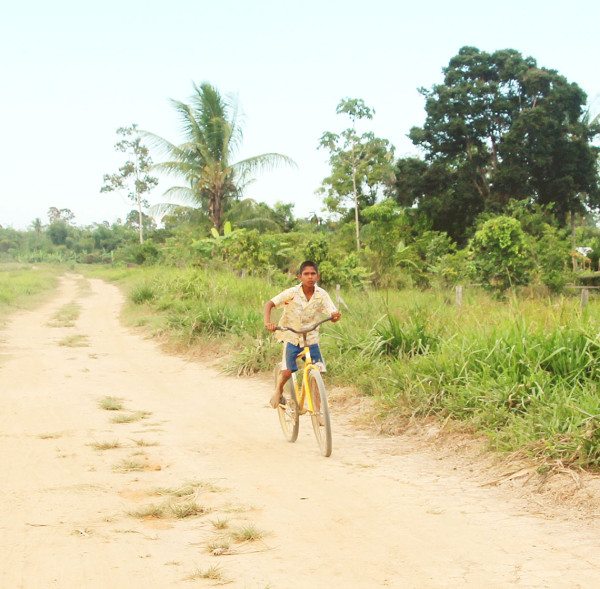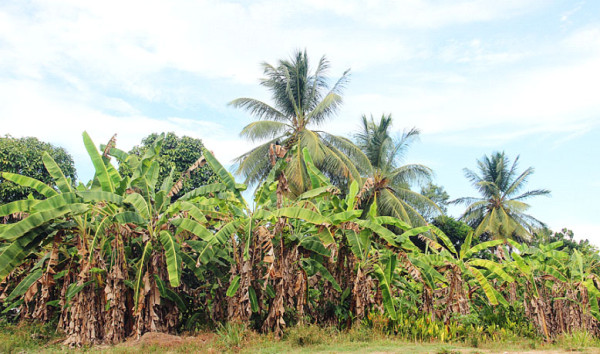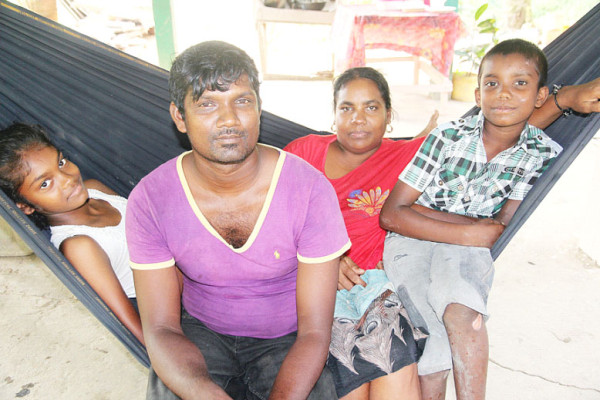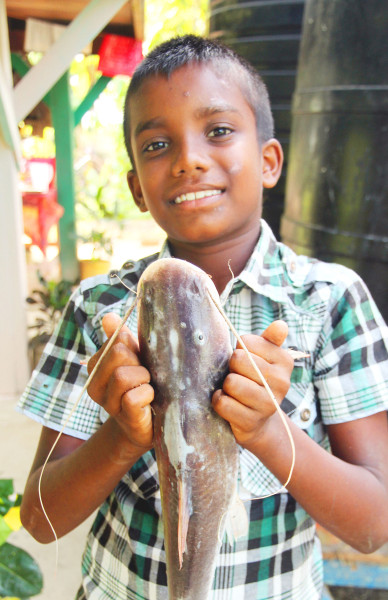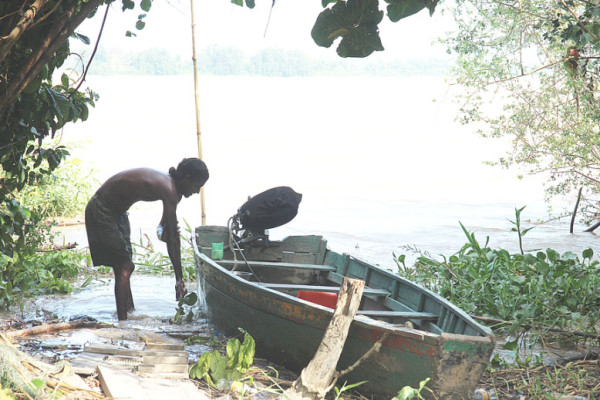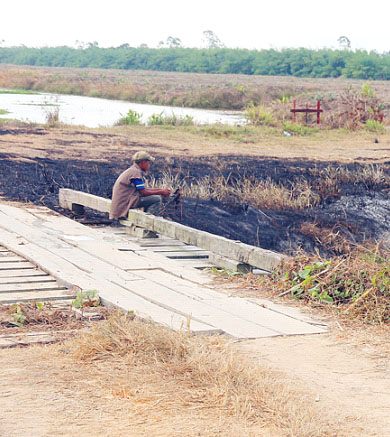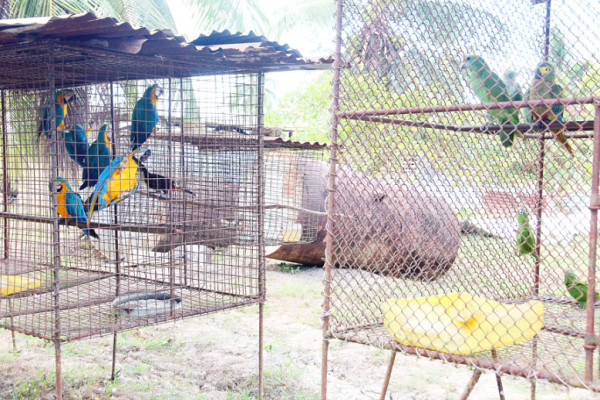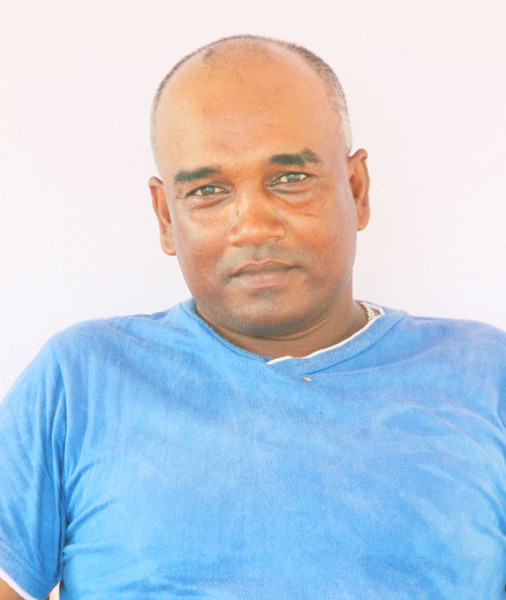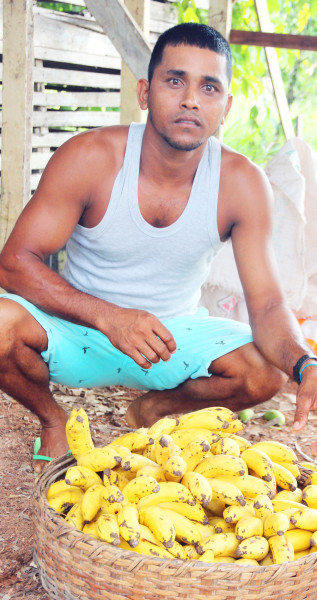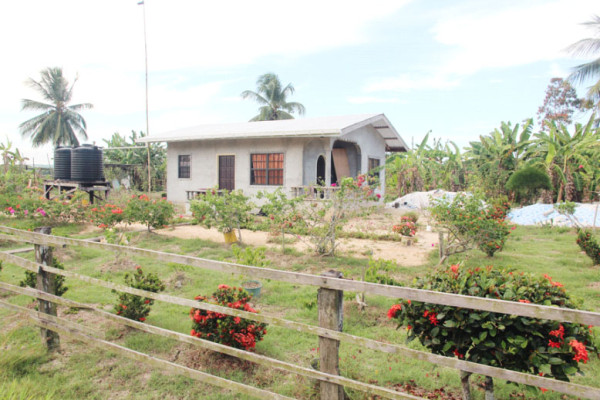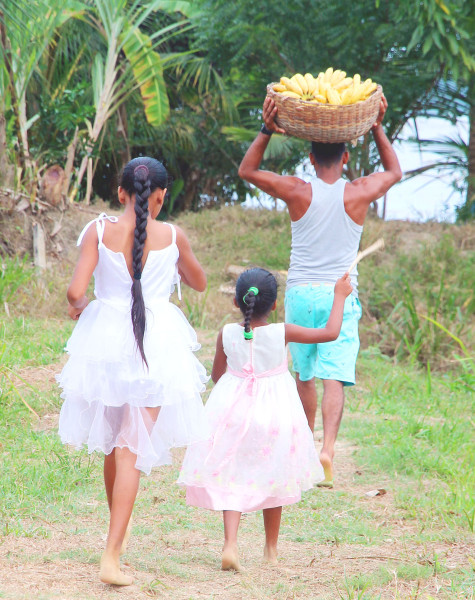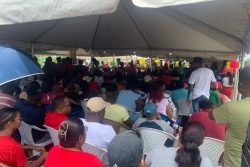Story and photos by Joanna Dhanraj
Catherina Sophia or CS as most villagers refer to their home, lies tucked away in a tiny corner of the West Bank Demerara. Because of its situation, many persons use speedboats to get to and from the village. Almost all of the villagers have their own boats and the custom is to take the ten-minute ride across the Demerara River to the East Bank Demerara where ground transportation is accessible. The route along the West Bank is used also but very rarely since it’s miles away from public transportation. The loam road’s terrible condition makes it inaccessible most of the time and according to the villagers, when the rain comes, the road is a disaster. Canefields line one side of the village while on the other side is the Demerara River.
The population of a little over 100 persons has no access to electricity or running water. However, the residents of Catherina Sophia have made the village a little haven for themselves and families. Most of the houses are well hidden from view behind bushes, and all sorts of plants. Just about every house has a front garden with flowers that seem more vibrant here than anywhere else and birds of various species. Behind the houses are flourishing kitchen gardens. If you’ve never seen a vulture out of the air, in CS you pass them along the road.
Most of the villagers are of East Indian descent and are related by blood or marriage. Villagers fish, work at the estate or do carpentry others hunt deer, labba and other wild animals which they say is a hobby and not a job. Most persons are farmers and one such is Kenrick Ragnauth, who has lived in CS for 35 years, almost all his life. According to him, CS existed since the early 1900s as his grandparents lived there also. His children attend different secondary schools; his older daughter attends the Friendship Secondary School on the East Bank Demerara and travels there by boat every day, while the younger one attends the West Demerara Secondary School. She stays with relatives and goes home on weekends because of the distance and condition of the road; when it rains she is forced to stay away for long periods of time.
Ragnath works with the Wales Estate and he walks out or rides sometimes if the weather is good to a point a few villages away where he catches the estate lorry. He visits his farm that is situated a few miles away every other day and brings out bananas, plantains, cassavas, eddoes and coconuts which he sells wholesale to vendors on the East Bank Demerara. He also rears cattle, sheep and ducks. According to Ragnath, they catch rain water to cook and drink and use the water from the trench to wash and water their plants. Sometimes every two to three months when the tractors bring the water punts down in the canefields for sugar workers, the villagers are allowed access to the punts also for drinking water. However they try to save all the rain water they can get in their black tanks and barrels. With the recent prolonged dry weather, Ragnath says they’re trying to conserve water as best as they can. A few persons have generators that provide them with electricity. Sometimes, he says, they experience flooding in the farms but only during the May-June rainy season.
“We glad if the government can come and look and give we some lease or something [many persons there have been squatting for many years],” he said. “I would like to see this place develop into a housing area; with proper road, light and water.” According to Ragnauth, the previous government made had promises of electricity and water and he wishes that the current government could do something to rectify this situation.
Nearby, behind a house, Sunday School was being kept for the children in the village, who could be heard singing lustily and clapping. There being no place of worship in CS, the villagers attend either the First Assemblies of God Church or the Seventh Day Adventist Church situated two villages away. The primary school is located there as well.
Although some persons could afford luxuries such as a television, the children prefer to play a game of cricket or go fishing. But when The World Beyond Georgetown visited, the playground was bare of children since many of the villagers were on the East Bank attending a wedding.
As Ragnauth spoke with this reporter, his son Kenrick Jnr returned from the river with his catch, which he put into a bucket of water. Although he still attends primary school, he goes fishing by himself. A few weeks ago Kenrick Jnr was struck down by a car in Friendship EBD and he spent a few days in the hospital.
A few houses away is Isaac Sarju, a 49-year-old GuySuCo field superintendent who has lived in CS his entire life. Sarju grew up with six brothers and a sister and recalls walking with them four miles every day to the Vive-La-Force Primary School. He never attended a nursery school and can’t remember if there was ever one during that time. He says, however, if there was, they would not have been allowed to go anyway because they would have been too small to walk the long distance.
He also uses a generator for electricity and the rain water for just about everything. As a farmer, he plants mainly papaws, bora and boulanger. His land is well plowed and prepared for the next batch of plants.
He has two daughters, one teaches at La Harmonie Primary School, while the other is currently in China studying medicine. Sarju is also a part of the softball team known as ‘Greenfield’ and said they were once a recognized cricket team.
He said the road repairs started since last year, but they’re still where they started because bad weather prevents the trucks from entering the village.
What he doesn’t like is the un-kept promises by government officials. On two occasions, last November and January gone, he said, the villagers were promised by former minister of local government Norman Whittaker that they would be provided with a better road and electricity.
Last month, during a meeting at Free and Easy, the villagers of CS were promised by Minister in the Ministry of Communities Keith Scott that they’d soon have tap water. Sarju said life in CS is one of simplicity and enjoyment where the atmosphere is peaceful and should their needs be met they’d soon have a life also of comfort.
Further along, around a bend where cattle graze and cranes prance about enjoying a tasty meal of flies and other insects, lives Anand Singh, another farmer. He too has lived here all his life and lives with his wife and four children. At the time of our meeting, Anand was getting his bananas together under a shed to take to Georgetown later in the afternoon. He sells wholesale also. He, like most of the villagers, buys his groceries in Georgetown or on the East Bank Demerara. He sells citrus and plantain also and is trying his hand with corn. He doesn’t plant it, but buys and resells; according to him it seems to pay more.
For him, the only setbacks are drainage, electricity and the road. But while living in Catherina Sophia may be difficult, it’s also a blessing, owing to the bounteous fruits and vegetables and the hospitality as well. Neighbours can usually be seen over enjoying a gaff and the beautiful serenity of Catherina Sophia.

